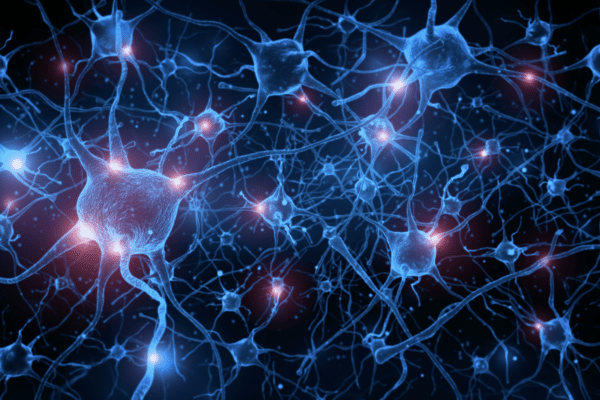Signs and Symptoms of Alcoholism – The Warning Signs of Someone with a Drinking Problem

It’s not always easy to tell when a person’s alcohol usage has crossed the line from social drinking to problem drinking. Often, people who abuse alcohol don’t realize their situation until it’s too late.
Alcohol addiction is a serious matter. It can lead to various physical, emotional, and mental health issues. Understanding the symptoms and side-effects of alcoholism can help you recognize when someone may have a drinking problem and need help. Treating it requires knowledge but also compassion and support.
Read on to learn more about alcoholism, including its signs and symptoms. By being informed, you can help yourself or a loved one to confront issues with alcohol abuse. There is always help and hope when overcoming struggles with addiction.
What Is Considered Alcoholism?
Alcoholism, often referred to as alcohol use disorder (AUD), is an addiction to alcohol. When a person is an alcoholic, they have a strong desire to consume alcohol despite negative ramifications and physical dependence.
There are several stages in the build-up to becoming an alcoholic, and it can be hard to know when drinking becomes alcoholism. A person may progress from casual drinking to alcohol use disorder without realizing it. AUD symptoms:
- Having to drink more and more to get the same effects (tolerance).
- Consistently neglecting responsibilities at home, school, or work, because of drinking.
- Frequently experiencing legal problems because of drinking, e.g., drunk and disorderly conduct charges.
- Consuming alcohol in dangerous situations, e.g., when operating machinery or driving under the influence.
- Using drink as the primary method of relaxing or de-stressing.
- Continuing to drink even when it has begun to cause problems in relationships with family and friends.
Alcoholism occurs when an individual experiences some of the above and has a physical need for a drink. Alcoholism is the most severe type of alcohol use disorder and a form of substance abuse. With it, a person will develop a physical dependence on alcohol and experience intense alcohol withdrawal symptoms when they are not drinking.
What Are the Signs of Being an Alcoholic?
With alcohol dependence, behaviors and symptoms can vary between individuals. As a guide, this list includes general signs that a person may be an alcoholic.
Someone with an alcohol problem might:
- Make excuses to drink, such as to de-stress, feel normal, or relax
- Become easily upset by criticisms of their drinking behaviors
- Choose to drink over other responsibilities
- Exhibit extreme mood swings and irritability
- Drink secretly or alone
- Demonstrate memory loss from episodes of drinking
- Become isolated from their family and friends
- Feel hungover when they are not drinking alcohol
It’s important to note that binge drinking (5+ drinks in 2 hours for men, 4+ for women) is not the same as an AUD, although it increases the risk of developing an AUD. Repeated episodes of heavy drinking (to the extent of binge drinking) may be an early warning sign of an alcohol problem.
The Physical Signs of Alcoholism
Alcoholism can be difficult to spot from the outside, but there are some physical signs of alcohol addiction that you may notice. Some of the visible physical signs of alcoholism include:
- Broken capillaries on the face and nose
- The smell of alcohol on the breath, even hours after heavy drinking
- Yellow skin and eyes caused by liver damage
- Weight loss as a result of drinking instead of eating
- Dry skin due to dehydration, resulting in a more aged appearance and wrinkles
- Brittle hair and nails from the dehydrating effects of drinking alcohol
- Poor hygiene
What Are the Symptoms of Alcoholism?
There is not an exact formula for determining whether or not an individual’s drinking equates to alcoholism. Everyone is different, and some alcoholics will display many symptoms, while others will only experience a few of the more severe consequences.
Symptoms of alcoholism break down into temporary withdrawal symptoms and long-term symptoms. Temporary alcohol abuse symptoms include:
- Impaired judgment and decision making
- Difficulties breathing
- Faster heart rate
- Temporary blackouts from heavy drinking
- Headaches
- Distorted hearing and vision
- Nausea
In the longer term, alcoholism can cause serious health problems. Long-term alcohol addiction and abuse symptoms include:
- Liver damage (Cirrhosis of the liver)
- Depression
- Anxiety
- Permanent brain damage
- Nerve damage
- Psoriasis
- Throat and mouth cancers
- High blood pressure
- Chronic pancreatitis
- Compromised immune system
- Malnutrition
- Alcohol poisoning
The long term effects of alcohol use also include unintentional injuries as a result of drinking. Serious accidents can occur, such as burns, falls, car crashes, and drownings.
How To Treat Someone with Alcohol Abuse Issues
If you suspect a loved one has alcohol addiction, there are ways that you can help them. Intervention can be highly successful, so it’s crucial to seek medical and professional assistance. According to the National Institute on Alcohol Abuse and Alcoholism, approximately 1/3 of people who receive treatment for alcohol use disorder have no further symptoms after one year.
Treatment for alcoholism and alcohol abuse depends on the severity of the addiction.
Less severe addictions may be treatable through counseling and/or support groups. These methods are particularly helpful for individuals who have had one particular incident or accident from alcohol intoxication.
For more deeply-rooted addictions, treatment usually begins with detox. This process cleanses the body from every physical trace of alcohol. When an individual has been drinking heavily over a long period and developed dependence, detox can be dangerous and even fatal. Therefore, it’s critical that this stage of the process happens with medical supervision at a professional facility.
Once detox is complete, the person has various cognitive, psychiatric, and medical treatment options for their alcohol problem. Various medications and counseling also can help alcoholics recover from their addiction.
Conclusion
If you or a loved one struggles with controlling alcohol use, contact an expert for support. The first critical step in recovery is reaching out.
Alcoholism is a treatable disease, and getting help can prevent serious consequences. Here at the Master Center for Addiction Medicine, we run an exceptional, physician-led addiction treatment program. We have more than 100 years of combined experience in recovery and addiction treatment.
Contact us today to find the support you need. We offer a holistic and individualized approach to overcoming alcohol addiction.
References


